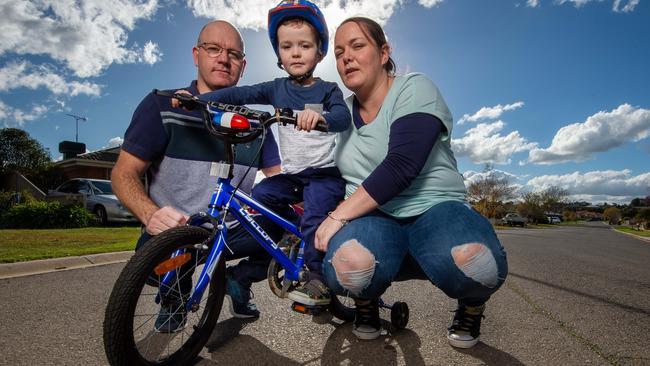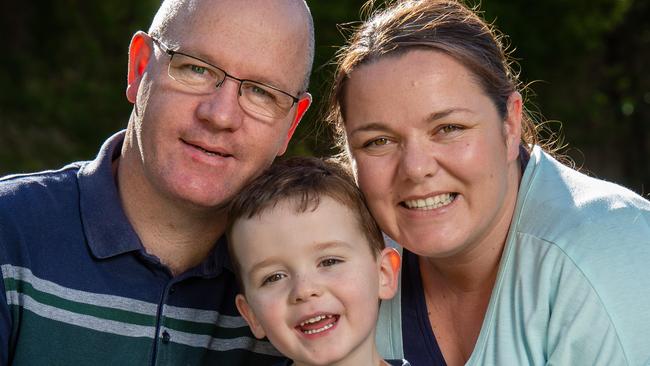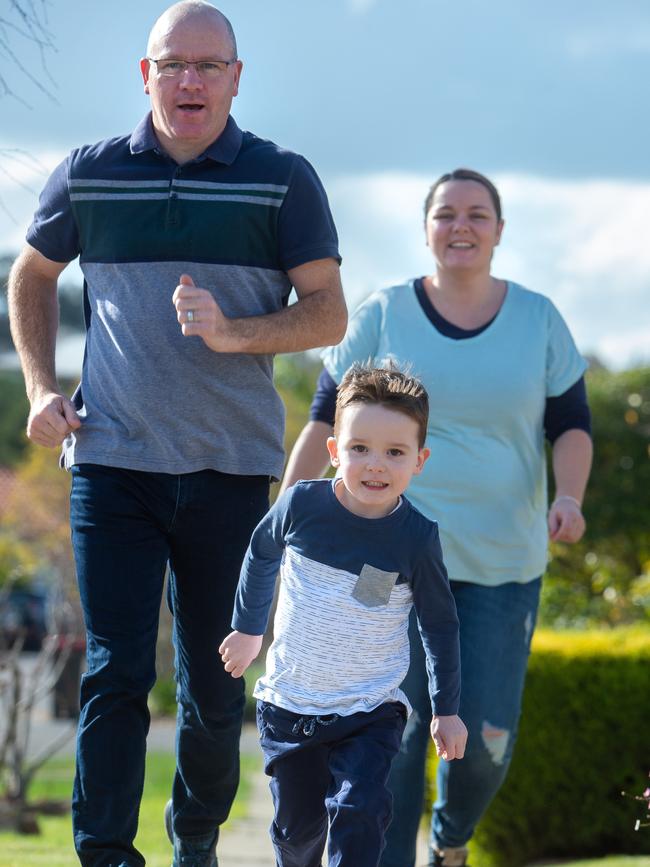Family facing deportation due to son’s illness fights to stay
An Irish couple whose family application for permanent residency was rejected because their Australia-born son, Darragh, is considered a “burden” to the healthcare system will be allowed to stay in Australia until their fate is decided.

VIC News
Don't miss out on the headlines from VIC News. Followed categories will be added to My News.
A Seymour family facing deportation because of their son’s cystic fibrosis will be allowed to stay in Australia until the federal government decides their fate.
Christine and Anthony Hyde’s application for permanent residency was rejected because their Australia-born son, Darragh, is considered a “burden” to the healthcare system.
The Irish couple has fought the decision for three years, exhausting all avenues of appeal, besides intervention from Immigration Minister David Coleman.
With their bridging visas due to expire next Tuesday, the family feared they would be booted from Australia.
But the Herald Sun understands they will be allowed to stay until a final decision on their case is made.
They have been waiting for weeks for any update, their hearts skipping a beat each time the phone rings.

“Darragh was born here, we see him as an Aussie,” Ms Hyde said. “It is so frustrating because we live here and we know this isn’t Australian, it is not what we do. We are better than that.
“I didn’t think for a second that a child born here with any medical condition could impact an (permanent residency) application.”
The acting assistant principal and SES volunteer “fell in love” with Australia during a working holiday in 2009, and returned in 2011.
They lodged an application in 2015 when Ms Hyde was pregnant — a “surprise” that came not too long after the couple was married.
They were shocked to discover Darragh’s diagnosis — revealed through a heel-prick test when he was eight weeks old — could block their bid to permanently call Australia home.
Residency can be denied when an applicant’s health is likely to pose a significant cost or “prejudice the access of Australian citizens and permanent residents to services in short supply”.

Darragh is unlikely to need a lung transplant but takes the drug, Kalydeco, which is subsidised under the Pharmaceutical Benefits Scheme but would otherwise cost $300,000 a year.
The family fears that if they are forced to return to Ireland, there could be a 12-month delay in the youngster accessing the drug there.
MORE: BIG FREEZE 5 AT THE ‘G
TV EXPERTS: DON’T TRY THIS AT HOME
Holding out hope they will remain in Australia, the family dreams of buying a few hectares so that Darragh could stretch his legs: “open the front door and he’s off”.
“The ministers are just doing their jobs and there is a process,” Ms Hyde said. “We don’t begrudge the process. They have a heart. Fingers crossed.”


